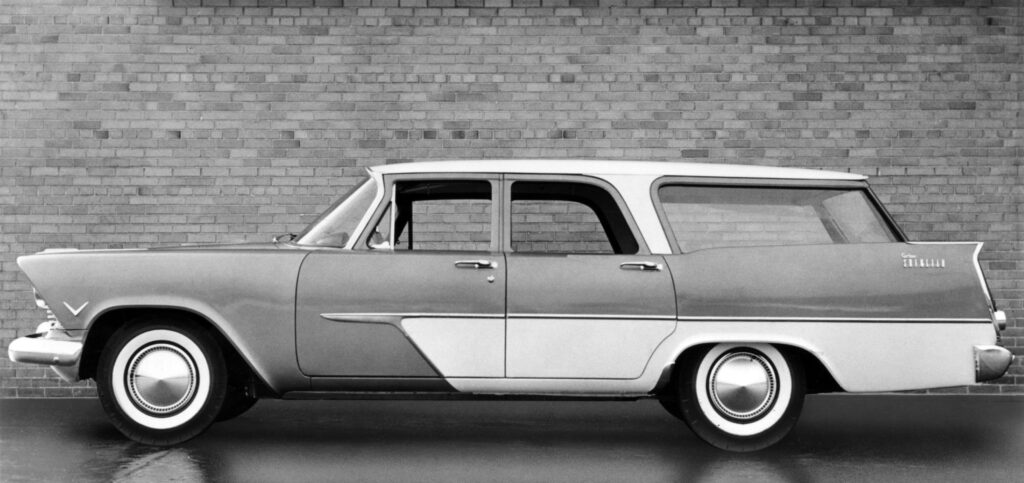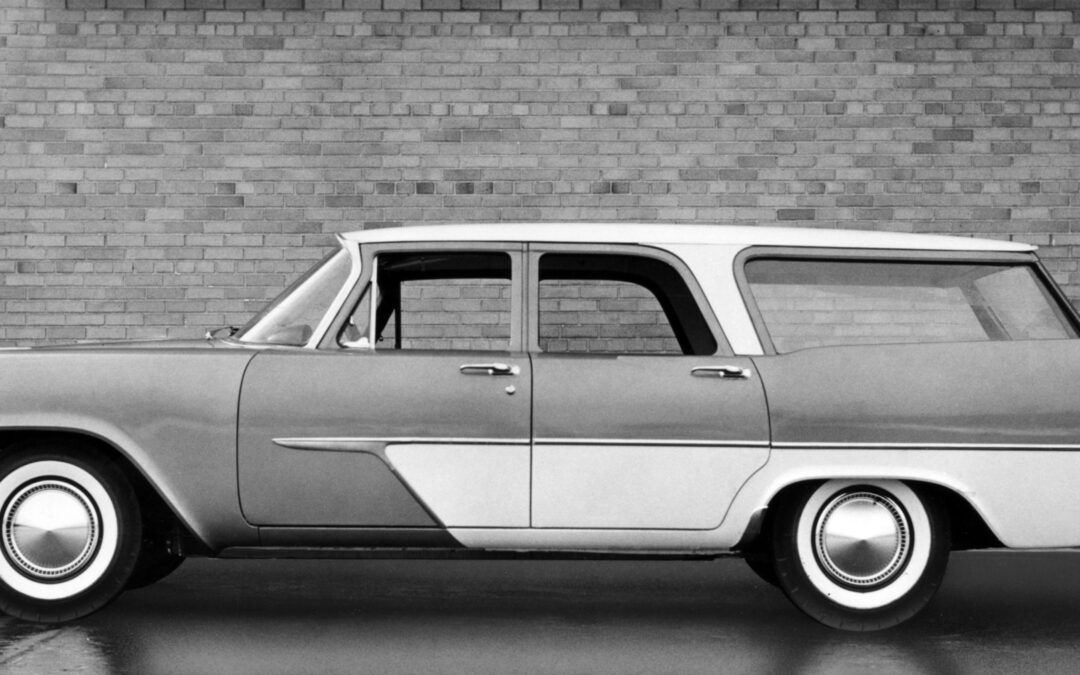 The 1957 Plymouth Suburban wagon, with the new “Forward Look” styling. (Stellantis)
The 1957 Plymouth Suburban wagon, with the new “Forward Look” styling. (Stellantis)
A 1957 Plymouth Suburban wagon became the 10,000,000th Plymouth to roll off the production line on Jan. 24, 1957. It was a proud accomplishment for the brand, which was launched in 1928, according to Wikipedia.
“Plymouth was to compete in what was then described as the “low-priced” market segment that was dominated by Chevrolet and Ford. It became the high-volume seller for the automaker until the late 1990s.”
Parent company Chrysler killed the brand in 2001, and the models that were still in production were discontinued or rebranded as Chrysler or Dodge.
In 1957, Virgil Exner’s new Forward Look design theme, advertised by Plymouth with the tagline “Suddenly, it’s 1960,” produced cars with advanced styling compared to Chevrolet or Ford, according to Wikipedia. Plymouth cars were marketed primarily in the United States.
“The 1957 total production soared to 726,009, about 200,000 more than 1956, and the largest output yet for Plymouth. However, the 1957-1958 Forward Look models suffered from poor materials, spotty build quality, and inadequate corrosion protection; they were rust-prone and greatly damaged Chrysler’s reputation.
“The Plymouth automobile was introduced at Madison Square Garden on July 7, 1928. It was Chrysler Corporation’s first entry into the low-priced field previously dominated by Chevrolet and Ford.
“Plymouths were initially priced higher than the competition but offered standard features such as internal expanding hydraulic brakes that Ford and Chevrolet did not provide.
“Plymouths were originally sold exclusively through Chrysler dealerships, offering a low-cost alternative to the upscale Chrysler-brand cars.
“The logo featured a rear view of the ship Mayflower, which landed at Plymouth Rock in Plymouth, Mass. However, the inspiration for the Plymouth brand name came from Plymouth binder twine, produced by the Plymouth Cordage Company, also of Plymouth. The name was chosen by [corporate executive] Joe Frazer due to the popularity of the twine among farmers.”


